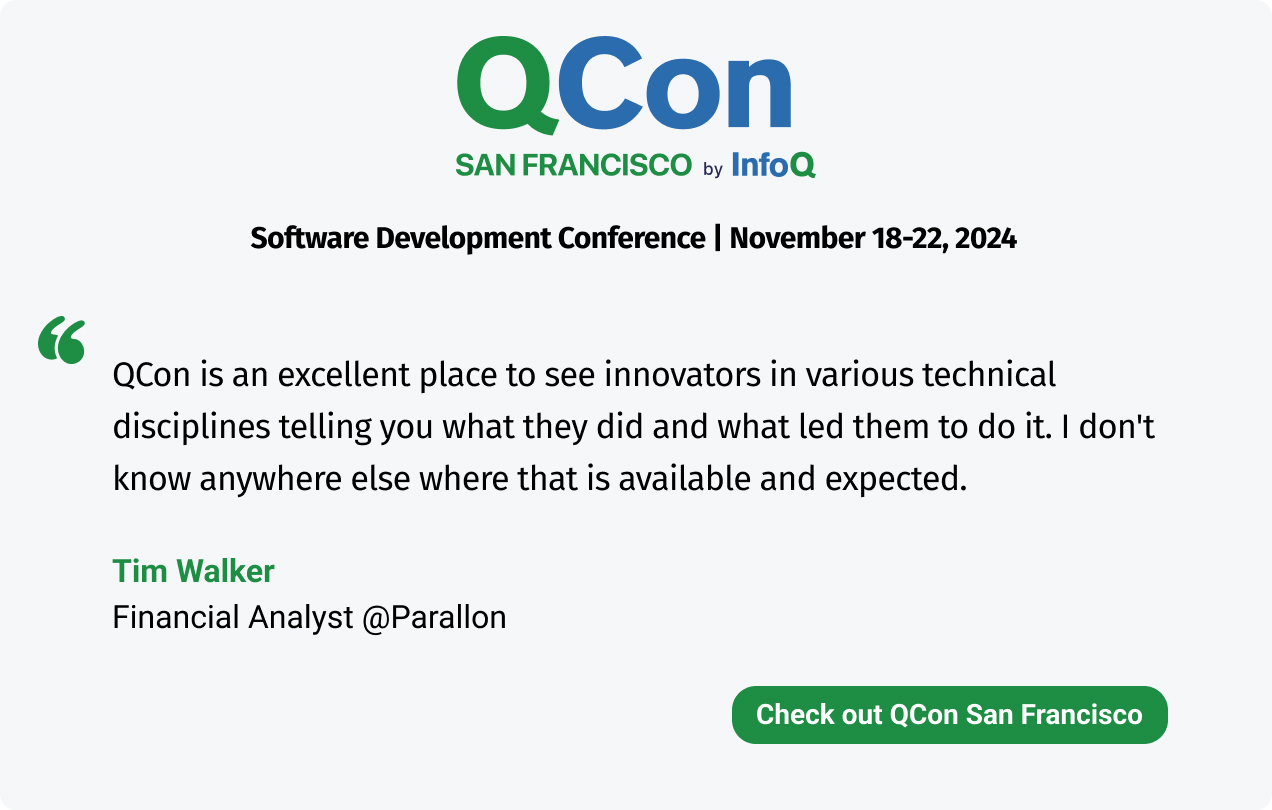InfoQ Homepage Presentations Shaw and Fowler About Forging a New Alliance
Shaw and Fowler About Forging a New Alliance
Summary
Scott Shaw, Director of Services at ThoughtWorks, and Martin Fowler, Chief Scientist at ThoughtWorks, talk about the need for a new relationship between the business department and the IT department. Studies have constantly shown that the main culprit for unsuccessful projects lies in miscommunication between the business people and the IT ones.
Bio
Scott Shaw is a manager and technologist with over 15 years experience building large-scale, distributed software systems for a variety of business domains. Martin Fowler is one of our industry's most well known thought leaders having had an influence in the adoption of OO, refactoring, patterns, agile methodologies, domain modeling, UML, and XP.
About the conference
ThoughtWorks recently began hosting events for Business and IT Leaders as well as technology practitioners to share insight and best practice across the industry. The briefings and the Exec Breakfast series are all grounded in reality - speakers are active practitioners, passionate about their work. The events focus on technology in relation to business issues, rather than being deeply technical.

